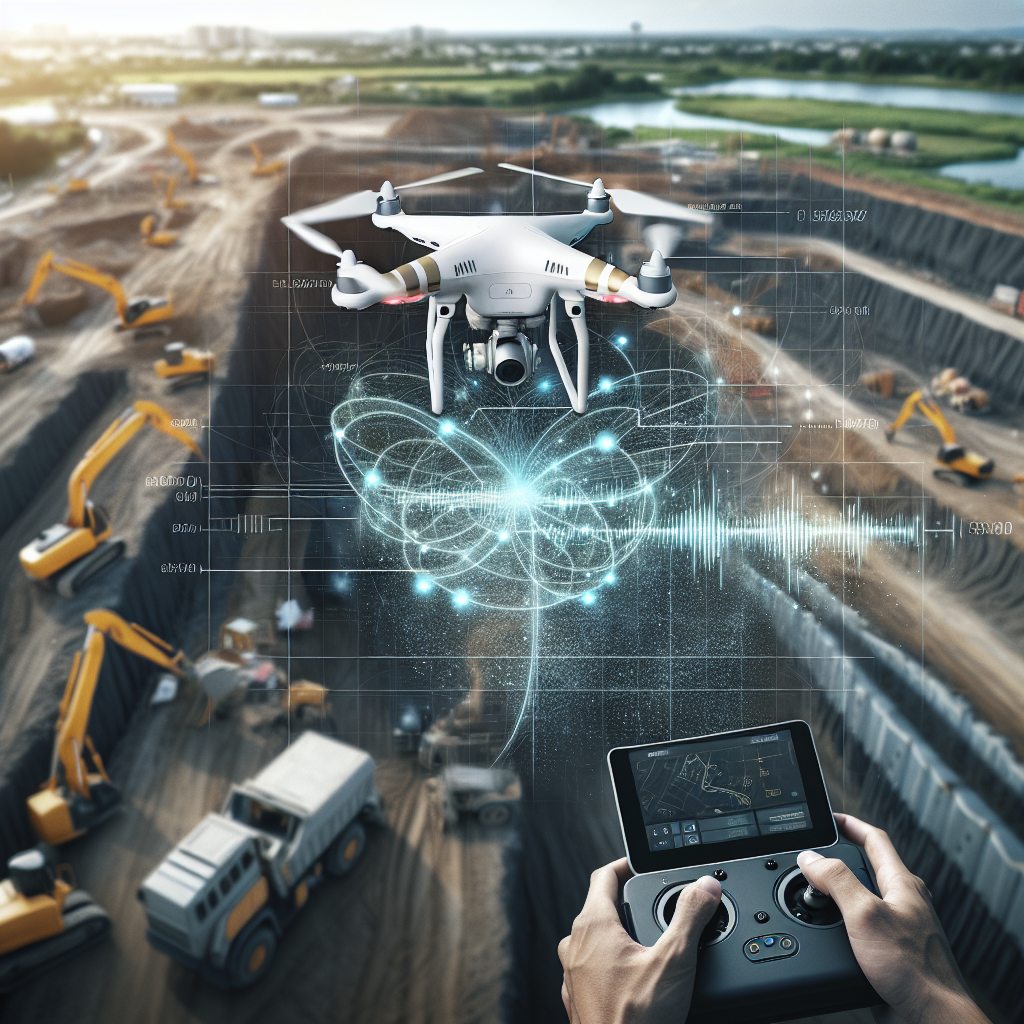Revolutionizing Construction Projects: The Benefits of Drone Utilization in Surveying and Mapping
- Indra Dwi Sugiyanto
- Sep 11, 2024
- 3 min read
In the realm of construction projects, precision, efficiency, and accuracy stand as paramount pillars dictating success and progress. The integration of cutting-edge technology has brought forth a game-changer in the form of drones. Unmanned Aerial Vehicles (UAVs) have soared into the construction industry, revolutionizing traditional practices of surveying and mapping. Let's delve into the myriad benefits that drone usage offers in construction projects, along with its seamless integration with heavy equipment data.
1. Enhanced Surveying Capabilities
Drones have bestowed construction professionals with unparalleled surveying capabilities. Equipped with high-resolution cameras and advanced imaging systems, drones conduct aerial surveys with exceptional accuracy and detail. The aerial perspective offers a comprehensive view of the construction site, allowing for the efficient assessment of terrain, topography, and existing structures. This detailed data aids in the creation of precise project plans and streamlines decision-making processes.
2. Time and Cost Efficiency
Traditionally, surveying large construction sites would require significant time and resources. Deploying drones expedites the surveying and mapping process exponentially. With swift aerial data collection and processing capabilities, drones eliminate the need for labor-intensive manual surveying methods, thus reducing timeframes and cutting costs significantly. This increased efficiency translates to accelerated project timelines and optimized resource allocation.

3. Improved Safety Measures
Safety concerns remain a top priority in the construction industry. Drone technology provides a safer alternative to on-site surveying methods by minimizing the need for workers to navigate hazardous terrains or heights. Drones can access hard-to-reach areas, collect data in real-time, and detect potential safety hazards, enhancing overall on-site safety protocols.
4. Seamless Integration with Heavy Equipment Data
The synergy between drone technology and heavy equipment data has propelled construction projects to new heights of efficiency. By integrating drone-captured survey data with heavy equipment telematics, construction managers gain invaluable insights into equipment utilization, performance, and maintenance needs. This integration optimizes construction workflows by enabling data-driven decision-making and improving operational productivity.
5. Environmental Sustainability
In an era characterized by sustainability consciousness, drones contribute to minimizing environmental impact in construction projects. The reduced need for ground vehicles for surveying cuts down carbon emissions and lessens the ecological footprint of construction activities. Drones operate on clean energy sources and align with eco-friendly practices, making them a sustainable choice for modern construction endeavors.
6. Future Prospects and Innovations
The realm of drone technology in construction continues to evolve, promising further innovations and advancements in the near future. From AI-powered drone analytics to real-time data streaming, the possibilities are limitless. As drones become more autonomous and adaptable, they will redefine the landscape of construction project management, offering unprecedented levels of efficiency, precision, and sustainability.
In conclusion, the utilization of drones for surveying and mapping in construction projects heralds a new era of technological prowess and operational excellence. Embracing drone technology not only enhances project efficiency, accuracy, and safety but also paves the way for a sustainable and innovative construction industry. The synergy between drones and heavy equipment data marks a paradigm shift in project management practices, empowering construction professionals to navigate challenges with precision and agility.
Let the drones soar, and construction projects reach new heights!
Consider this blog post a comprehensive guide to the transformative benefits of integrating drones into construction projects. From enhanced surveying capabilities to seamless data integration, drones prove to be an indispensable asset in modern construction endeavors. The future is now, with drones leading the charge towards optimized efficiency, sustainability, and innovation in the construction industry.



Comments